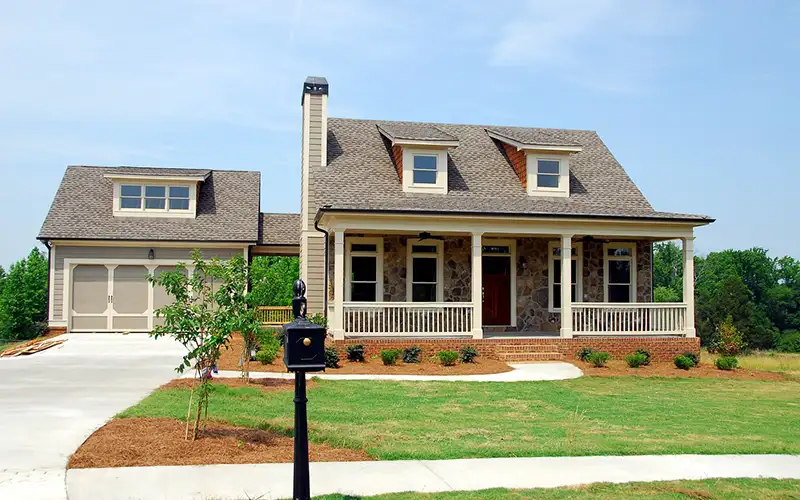
What affects property value?
When it comes to establishing the market worth of real estate, property valuations are essential. They serve to support homeowners, investors or buyers in making informed decisions and strategically navigating the Australian property market. Property valuers in Queensland can provide accurate assessments used to sell property, set up rental contracts, manage settlements and more.
Valuations are conducted by independent valuers. More specifically, Certified Practising Valuers (CPVs). They assess real estate based on factors like location, size, condition, recent sales data and market trends. It is crucial to realise that property values are subject to change.
They can be influenced by the likes of:
- economic conditions
- market fluctuations
- renovations or improvements to the property.
While property valuations offer valuable insights, their validity is not indefinite.
The shelf life of a valuation typically varies depending on several factors, including the purpose of the valuation and the regulations set forth by various financial institutions.
For mortgage purposes, lenders usually specify the time-frame within which a property valuation remains valid. This period can range from three to six months, although some lenders may extend it to twelve months in certain cases.
After the expiration of this period, lenders may require a new valuation to ensure the property's current market value aligns with the loan amount.
What calls for a fresh valuation?
Multiple internal and external considerations influence how long a valuation is good for. These changes can significantly impact the value of a property and should be considered to ensure accurate and up-to-date valuations.
This applies to residential, commercial and industrial property alike.
The most obvious internal changes include substantial renovations or improvements made. Additions such as extensions, new kitchens and upgraded bathrooms all warrant a fresh valuation.
External factors can be critical as well.
For instance, significant changes to the surrounding neighbourhood or the broader economic climate can dramatically impact asset values. New shopping centres or transport hubs, for example, could increase desirability.
On the other hand, crime rates or a decline in local amenities can have a negative effect.
Another influence could be changes in zoning regulations or government policies. If an area is rezoned to facilitate higher-density development, it can significantly increase property values. Meanwhile, regulations that restrict land use can have the opposite effect.
By considering these changes, property owners can ensure that their valuations accurately reflect the current market value of their properties and property owners can maximise asset value.
Valuable property improvements
There are numerous key improvements and renovations that may justify a new valuation. These can be very different for residential versus commercial or industrial real estate.
As previously mentioned, adding a new room or renovating the kitchen or bathrooms can be extremely valuable. Other options include:
- installing energy-efficient appliances
- upgrading flooring
- enhancing the landscaping.
Features like swimming pools, outdoor entertainment areas or garages can also boost market worth.
For commercial properties, different considerations apply. One might upgrade the building facade, renovate common areas, enhance the lighting and ventilation systems or add amenities like parking spaces, elevators and recreational areas.
These upgrades can attract higher-quality tenants and increase the property's rental income, resulting in a higher valuation.
When it comes to industrial properties, value boosters include modern machinery and equipment, improved infrastructure like loading docks and storage facilities, eco-friendly practices or increased overall usable space. These can drive up market value by increasing productivity and efficiency.
It’s important to remember that only a licensed valuer holds the necessary training and experience to accurately account for these kinds of changes and their effects on market value.
Are regular valuations compulsory?
While regular valuations are not mandatory, they are important in certain situations and can provide a range of benefits depending on the asset owner’s situation and needs.
Homeowners, for example, can choose to get a valuation done for their property for buying, selling, renting or refinancing. The service will always focus on factors like location, condition, design, size and recent sales of similar properties in the area.
Commercial properties generally require more frequent valuations. These include:
- retail spaces
- office blocks
- industrial facilities.
Such valuations are usually performed for financial and planning purposes. Regular valuations will provide reliable data for rental agreements, taxation, accounting and loan applications.
Government-owned properties are a little different.
For these kinds of properties, regular valuations are a necessity. They assist in determining fair market value for properties acquired through compulsory acquisition, taxation assessments or for public purposes.
Finally, valuations are mandatory for various legal processes. These include probate, divorce settlements and insurance. This is to ensure an equitable distribution of assets or determine the replacement value in case of loss or damage.
Summary
While regular valuations are not compulsory for all property types in Queensland, they can serve as an invaluable tool for property owners, investors and various legal and financial transactions and institutions by providing an accurate estimate of property value in the dynamic real estate market.
Valuations do not generally have a defined shelf life.
Keen investors and property owners will want to gauge the frequency of valuations based on renovations and improvements made to the property, as well as external economic and market changes that influence property values.
For professional assistance in planning valuations and effectively managing your property, contact one of our highly qualified valuers today.





